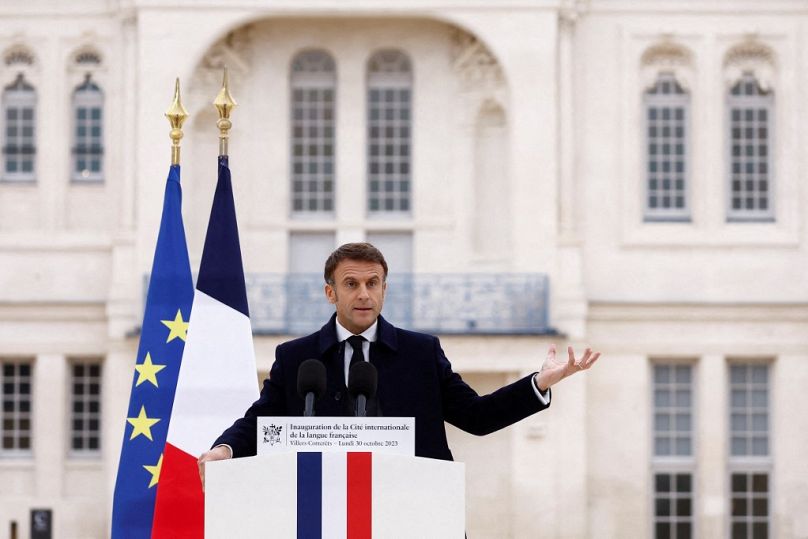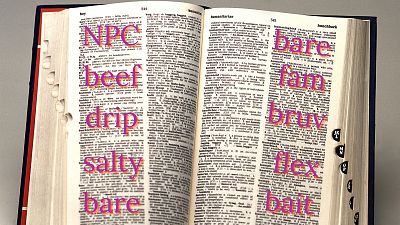Authors of the law, which concerns official communications in France, said gender-inclusive language was “an obstacle to comprehension and ease of reading.“
The French Senate has voted in favour of a proposed law banning gender-inclusive language from official communications in France.
MPs will now have to vote on the law, although no date has been announced for this as yet.
On Monday, Emmanuel Macron urged France not to "not to give in to the tides of time" and reject gender-inclusive writing in order to safeguard the French language.
"In this language, the masculine is the neutral. There's no need to add dots in the middle of words, or hyphens, or anything else to make it readable," the French President said at the opening of a new language centre in the town of Villers-Cotterêts, near Paris.
French is a language that "builds the unity of the nation" said Macron.
"We need to allow this language to live, to draw inspiration from others, to steal words, including from the other side of the world (...) to continue to invent, but also to keep its foundations, the foundations of its grammar.
The decision by the Senate follows a long-standing debate between rightwing-leaning language purists and the left and feminists.
"Inclusive writing," or écriture inclusive, adds the feminine ending to a noun, so rather than the masculine form standing in for both male and female, both genders are represented.
For example: “président.e.s” (president), sénateur.rice.s (sénateurs- senators) and cher·e·s lecteur·rice·s (cher lecteur -dear reader).
The language in question also includes:
- iel to replace the pronouns il and elle - or he and she.
- celleux, used for both celles and ceux - or those.
The law would ban such language in the workplace, advertising and contracts “whenever the legislation (or regulatory bodies) require a text to be written in French''.
The French President’s wife, Brigitte Macron and the Académie Française have long railed against what they see as a "barbaric abuse of syntax".
There are two pronouns, il and elle, Macron said. “The language is beautiful. And two pronouns are fine”.
‘An obstacle to comprehension’
The ban was proposed by Pascale Gruny, Les Républicains senator for the Aisne department, who refused to use the term "sénatrice".
She told French media that écriture inclusive' risks making the language less accessible to people who have problems with literacy or have disabilities and represents an "ideology that jeopardises the clarity of our language."
In 2021 the Académie Française argued this point in an open letter discouraging the use of such language.
“Besides the fact that it does not correspond to the spoken language, it essentially imposes a second language, the complexity of which penalises people with cognitive disabilities, such as dyslexia, dyspraxia or apraxia.
“Ultimately, this attempt to make things fairer simply reinforces inequality”.
On X (formerly Twitter) Marine Le Pen of the far-right Rassemblement National supported the ban, stating that the French language was a treasure that “must be protected against wokeism, of which inclusive language is another sinister and grotesque manifestation.”




